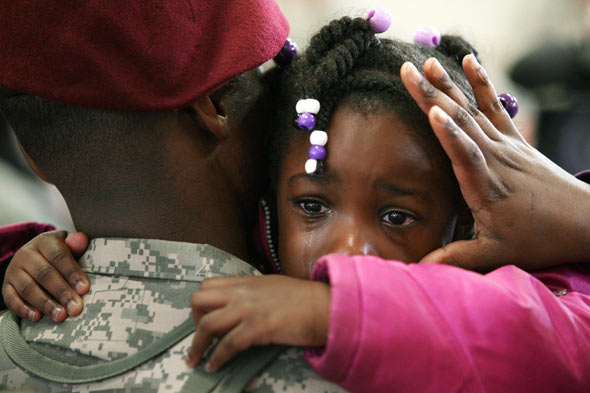Should I Get Travel Insurance?
As we reach stability in the COVID-19 pandemic and the road back to normalcy is finally in sight, travel bans are finally being lifted. Millions of people are planning trips all over the globe and are filled with that familiar buzz of traveling. This summer, the US travel sector is expected to grow by 35.6% and international spending by 228%!
However, with traveling comes risks that can cost you money. Whether your trip is a two-day stay at a resort or a summer-long backpacking trip across Europe, all travelers should seek travel insurance.
Please keep reading to learn more about travel insurance and what it can and can’t cover.
What is Travel Insurance?
It can be difficult determining whether you should get travel insurance and, if so, which company and plan to go with. Before you get overwhelmed with insurance options and descriptions that go right over your head, understand what travel insurance is.
Travel insurance, like any other type, protects you from unforeseen circumstances that can harm you. Similar to how health insurance helps you with medical emergencies and car insurance protects your car in case an accident occurs, travel insurance is a safety net for when you’re traveling.
Travel insurance may seem unimportant, especially for short trips. It can protect you from financial losses, both big and small, while you travel. And also ease your worry about anything going wrong during your vacation.
However, every trip, no matter the size, comes with risks, and it’s helpful to have coverage that’ll protect you and your assets, such as your baggage, plane tickets, and even your health.
What it Covers
Travel insurance can cover a wide range of situations during your vacation. Depending on your trip and circumstances, here are some ways insurance can protect you:
Illness or sudden sickness
If during your travels you catch anything from a cold to something more serious such as COVID-19, travel insurance can cover your foreign medical costs. Your health insurance won’t cover some emergency treatments or illnesses while on vacation. So it is important to reduce emergency health costs.
While COVID-19 is slowing down and travel bans are lifting, there is still a possibility of contracting the virus while on vacation. Be sure to check the COVID-19 strain and statistics of the area you visit before deciding whether you are getting travel insurance.
Emergency evacuation
In some cases, sudden illness can require being immediately transported back home or to a hospital. Although rarely necessary, it is still important to be aware of the possibility of a cost such as this and to be adequately equipped to handle it.
Trip cancellation
Everyone understands that, sometimes, life gets in the way. Sometimes circumstances don’t let us continue our plans or force us to delay them. If you have to end a trip early or cannot go, any reservations or tickets you have can be reimbursed or refunded.
While not all reservations can be refunded, insurance will help soften the costs of the canceled plans. For plane tickets, cruises, or hotel reservations, the travel companies can sometimes reimburse the total cost with significant time between the cancellation and the trip.
However, if a trip is canceled suddenly within two weeks of leaving, companies can decide not to give a full refund. This is where insurance can help alleviate costs for any reservations.
Lost baggage
Bustling airports, fast taxis, confusing streets. Anything can contribute to losing your luggage during your trip. Keep in mind that while US airports can offer full reimbursement for the valuables in your bag, foreign countries are stricter, will not provide as much compensation, and will take longer to declare a bag stolen or lost.
Insurance can protect your baggage and valuables if lost or stolen at any point in your trip and help cover costs airlines might not cover if lost in transport.
What it Doesn’t Cover
As much as travel insurance covers, it can’t cover everything. If you’re looking into getting travel insurance, keep in mind these things that are only covered by a few plans:
Pre-existing medical conditions
Most travel insurance plans won’t cover accidents relating to pre-existing conditions, so make sure to find the best plan to help you with your medical history.
Destination Instability
If the place you are traveling to has political unrest, some insurance companies won’t cover whatever damages may be sustained there or won’t reimburse you if you decide to cancel your trip due to these issues.
- Fake ticket. Insurance will most likely not cover these expenses if you purchase fake tickets for an airline or are scammed anytime throughout your trip. Make sure to use credible sites to buy airline and sightseeing tickets.
- Bad weather. While on your trip, if bad weather gets in the way of your vacation activities, your spending won’t be covered. The only weather situations covered are if it’s bad enough to cancel or delay your trip entirely.
- A foreseen crisis. Before you even buy travel insurance or go on your trip, things like pandemics, illnesses, or natural disasters will not be covered. These things are considered foreseen and therefore are not unexpected money losses.
Different Types of Travel Insurance
The most common travel insurance is the comprehensive plan. It covers anything that could happen and everything listed under the “What it Covers” list above. However, the sheer range of travel insurance covers also allows insurance companies to offer separate services.
Here are a few separate plan options you have when considering travel insurance:
- Comprehensive Travel Insurance
- Travel Medical Insurance
- Trip Cancellation Insurance
- Baggage Insurance
- Travel Life Insurance
- Rental Car Insurance
Travel Insurance Costs
Typically, the travel insurance costs will go up or down depending on how much your plan covers. A comprehensive plan may cost more but will cover anything that happens, while individual plans such as travel medical insurance or baggage insurance will have a lower cost but will only have your back in a few situations.
The cost is usually between 5-6% of your trip cost if you’re a traveler under 60. If you’re older, usually the cost is around 10% of your trip (rates vary depending on the provider).
Factors that can affect travel insurance costs are:
- Age and pre-determined health
- Length and cost of travels
- Amount of coverage
- Medical conditions you want to be covered
There are many benefits to getting travel insurance. It can provide a safety net and ease your worry about the risks of traveling.
It can also protect you from big or small financial losses while traveling. When looking into insurance, compare plans and find the best company suited for your needs.
Insurance is there to protect you during a time meant to be enjoyed. Whether your trip is big or small, it’s worth looking into travel insurance and finding the best plan for your vacation.






